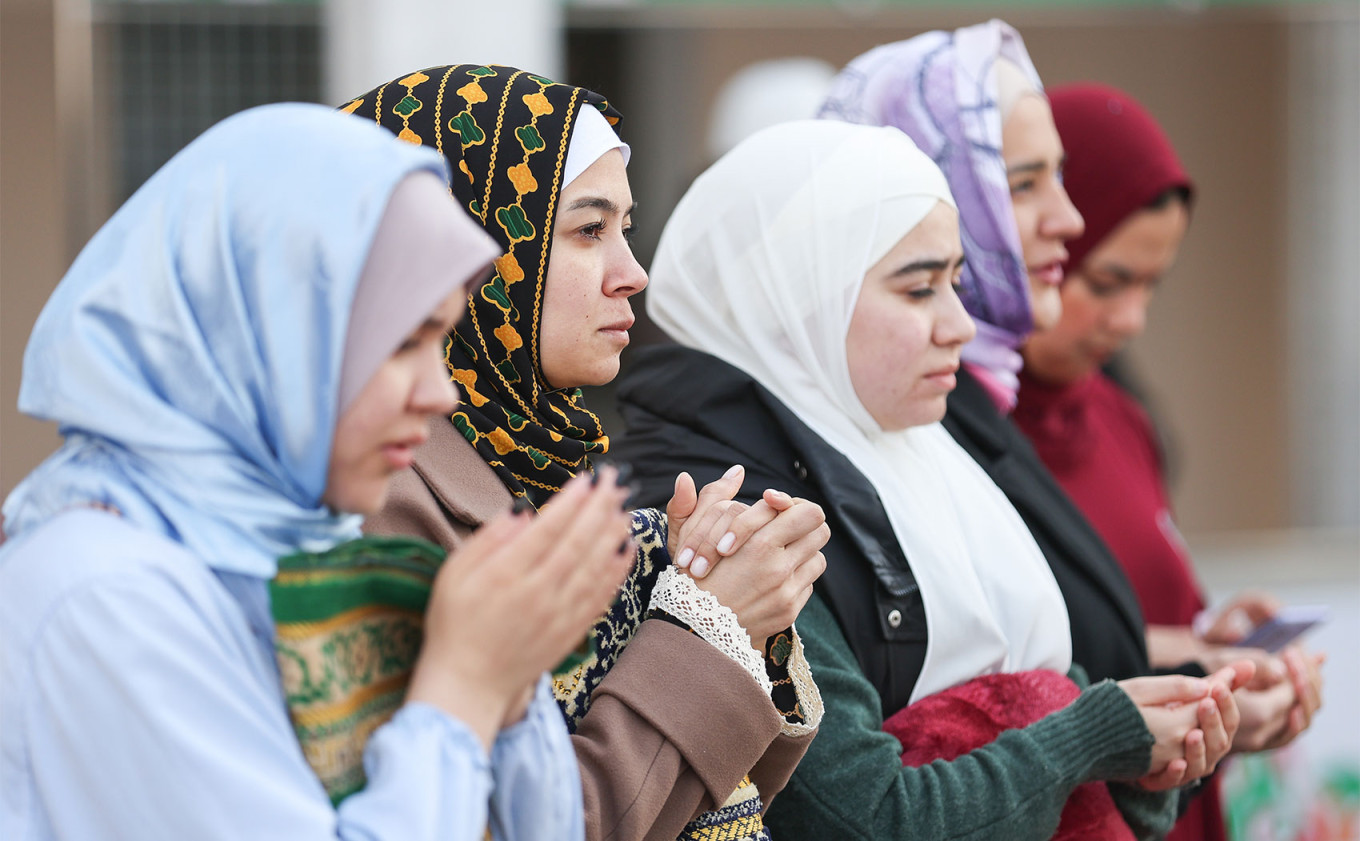The Enduring Spirit Of Muslim Athletes: Faith, Dedication, And Achievement
Detail Author:
- Name : Oda Kshlerin
- Username : lora.sipes
- Email : lorena68@damore.com
- Birthdate : 1987-02-04
- Address : 961 Landen Stream Suite 919 Lake Johnsonborough, TN 48849-7697
- Phone : (989) 821-8910
- Company : Carroll, Gorczany and Ebert
- Job : Manufactured Building Installer
- Bio : Eos eos cumque sint saepe et minima ipsa sit. Dolores reiciendis esse tenetur saepe tempora. Ipsam corporis recusandae eligendi explicabo.
Socials
facebook:
- url : https://facebook.com/myrna_kunze
- username : myrna_kunze
- bio : Explicabo voluptatem culpa voluptate libero facere.
- followers : 1892
- following : 2873
tiktok:
- url : https://tiktok.com/@myrnakunze
- username : myrnakunze
- bio : Porro inventore voluptatem similique ipsa non dicta eius.
- followers : 729
- following : 2591
linkedin:
- url : https://linkedin.com/in/myrna.kunze
- username : myrna.kunze
- bio : Sunt ut et commodi totam qui.
- followers : 6335
- following : 1303
instagram:
- url : https://instagram.com/kunzem
- username : kunzem
- bio : Eos aliquam laboriosam sint. Est aut quo fuga sit quaerat. Harum quo illum ut culpa.
- followers : 3391
- following : 1298
twitter:
- url : https://twitter.com/myrna.kunze
- username : myrna.kunze
- bio : Consequatur ut vitae atque et. Velit iusto consectetur fugiat amet error. Nobis laborum non debitis incidunt.
- followers : 436
- following : 581
Think about the incredible feats of strength, speed, and skill we see in sports today. Behind many of these amazing moments are muslim athletes, people who bring a unique blend of dedication and deep personal conviction to their chosen fields. It's truly inspiring to see how their faith guides them, shaping not just their performance but also their approach to life outside the arena.
You see, a muslim is a person who has dedicated his worship exclusively to God, for just as we say in Arabic that something is ‘salima’ to a person, meaning it is given over. A person who believes in and consciously follows Islam is called a Muslim, also from the same root word. So, the religion is called Islam, and a person who believes in and follows it is a Muslim. It’s a way of life, actually, built around core beliefs.
These beliefs, which include faith in one God (Allah), belief in revealed books like the Quran, and following the teachings of Prophet Muhammad (peace be upon him), really do shape a person's outlook. This deeply held faith often becomes a powerful force for many athletes, giving them strength and a sense of purpose, in a way, that goes beyond just winning or losing. It’s pretty remarkable.
Table of Contents
- Understanding What It Means to Be a Muslim
- Core Principles Guiding Muslim Athletes
- Faith and Discipline in Sport
- Qualities Seen in Muslim Athletes
- Overcoming Challenges with Resilience
- The Global Presence of Muslim Athletes
- Frequently Asked Questions About Muslim Athletes
Understanding What It Means to Be a Muslim
To truly appreciate muslim athletes, it helps to know what being a Muslim means. A Muslim is someone who identifies as a follower of the Islamic religion. Muslims believe that there is only one God. This is a central belief, and it’s something that defines their entire outlook on life, you know. Islam is a monotheistic religion from Abrahamic beginnings, which means it shares roots with Judaism and Christianity.
The core of being a Muslim involves a set of beliefs. These include belief in one God, belief in the revealed books, which include the Quran, Torah, and Bible, and belief that Muhammad (peace be upon him) is the final messenger of Allah. Muslims believe that their sacred text, the Quran, is the absolute word of God as it was revealed to the Prophet. These beliefs are the foundation of their lives, and frankly, they shape everything.
There are six things that one must believe to be Muslim. This includes belief in God, His angels, His books, His messengers, the Day of Judgment, and divine decree. A person who believes in and consciously follows Islam is called a Muslim, also from the same root word. So, to be a Muslim one has to hold a set of core beliefs. This is formally done by reciting the Shahada, the statement of belief of Islam, without which a person cannot be classed a Muslim. It’s a very personal and profound commitment, in some respects.
Core Principles Guiding Muslim Athletes
When we think about muslim athletes, their faith often provides a strong framework for their actions and choices. The principles of Islam, such as dedication, discipline, and humility, can really shape how they train, compete, and carry themselves. This table shows some key ideas that often guide them.
| Principle | How It Guides Athletes |
|---|---|
| Oneness of God (Allah) | Fosters a sense of purpose beyond personal glory, reminding them that their abilities are a gift. This can bring humility and gratitude, too it's almost. |
| Submission to God's Will (Islam) | Encourages acceptance of outcomes, whether victory or defeat, as part of a larger plan. It builds resilience and peace of mind, basically. |
| Discipline and Self-Control | Promotes consistent training, healthy habits, and avoidance of harmful behaviors, which are vital for peak performance. This comes from the teachings, you know. |
| Gratitude (Shukr) | Inspires appreciation for their health, opportunities, and talents. This can lead to a more positive outlook, very. |
| Patience (Sabr) | Helps them endure tough training, injuries, and setbacks, understanding that perseverance brings reward. It’s a big part of their mental game. |
| Humility | Keeps them grounded, preventing arrogance in success and despair in failure. This means they often give credit where it's due, which is good. |
| Community (Ummah) | Provides a support system and a sense of belonging, motivating them to represent their faith and community well. This is quite important, actually. |
Faith and Discipline in Sport
The core beliefs of Islam often translate directly into the rigorous discipline needed for high-level athletic performance. A Muslim is a person who has dedicated his worship exclusively to God. This dedication can extend to their training, where they see their bodies as a trust from God, something to be cared for and used responsibly. This mindset helps them push through difficult moments, knowing their efforts are part of a larger purpose, that.
Muslims believe that there is only one God, and this belief fosters a sense of accountability. This means they often approach their sport with integrity, fairness, and respect for others. The idea of submission to God’s will, which is what the word Islam means, helps them accept outcomes gracefully. It's about doing their best and leaving the rest to God, which can be very freeing for an athlete under pressure, in a way.
Ramadan and Athletic Life
One of the most visible aspects of Islamic practice for muslim athletes is the observance of Ramadan. This is a holy month of fasting from dawn to sunset. It marks the end of Ramadan—the Islamic holy. During this time, athletes must adapt their training and competition schedules significantly. They cannot eat or drink during daylight hours, which presents unique challenges for hydration and energy levels, especially during intense physical activity, very.
Many athletes adjust their routines, perhaps training late at night or very early in the morning. Some might even shift their focus during this month to less strenuous activities or specific skill work. The fasting itself is seen as a spiritual exercise, building self-control and empathy. It can actually strengthen their mental fortitude, which is a big asset in sports. It shows their deep commitment, you know.
Despite the physical demands, many Muslim athletes report feeling spiritually uplifted during Ramadan. They often find that the discipline required for fasting translates into greater mental toughness and resilience on the field or court. It’s a testament to how their faith can truly shape their physical capabilities, pretty much. This period becomes a time for reflection and renewal, strengthening their bond with God.
The Power of Prayer and Mindset
Prayer is a central part of a Muslim's daily life, and for muslim athletes, it often provides a source of calm and focus. Muslims believe that Muhammad (peace be upon him) is the final messenger of Allah and that the Quran. The five daily prayers are a structured way to connect with God throughout the day. These moments of quiet reflection can help athletes manage stress, maintain perspective, and stay grounded, honestly.
Before a big game or competition, you might see a Muslim athlete offering a quick prayer. This isn't just a ritual; it's a way to seek strength, guidance, and peace of mind. It helps them remember their ultimate purpose and puts the pressures of competition into perspective. This kind of spiritual anchor can be incredibly powerful for mental preparation, giving them a certain kind of inner peace, more or less.
The mindset fostered by Islam, with its emphasis on gratitude and patience, also contributes to an athlete’s mental strength. When things don't go their way, or when they face injury, their faith can help them accept the situation and work through it with perseverance. It teaches them that every challenge is an opportunity for growth, which is a really useful way to think about things in sports, you know.
Qualities Seen in Muslim Athletes
Muslim athletes often show qualities that reflect their faith. These include humility, strong work ethic, and a commitment to fair play. Their belief in one God and the teachings of Islam encourage them to be grateful for their talents and to use them responsibly. This often means they are not just focused on personal glory but also on being good role models and representing their community well, in a way.
Many Muslim athletes are known for their quiet determination and their respect for opponents. They embody the idea that true strength comes from within and is guided by moral principles. This can be seen in how they handle both wins and losses, often showing grace and dignity. It's a testament to the values that are instilled through their faith, that.
Their discipline, often honed through practices like fasting and regular prayer, translates into consistent effort in training. This helps them achieve peak physical condition and mental readiness. They understand that success is a combination of hard work and God’s blessing, which keeps them motivated and grounded. It's a powerful combination, really.
Overcoming Challenges with Resilience
Being a professional athlete presents many challenges, and for muslim athletes, there can be added layers related to their faith. Balancing rigorous training schedules with daily prayers, or managing fasting during competitions, requires careful planning and immense dedication. They often have to work closely with their teams and coaches to make sure their religious obligations are respected, which can be a bit tricky sometimes.
Beyond the practical aspects, Muslim athletes might also face misconceptions or a lack of understanding about their faith. They sometimes become public figures who educate others, simply by living their truth and showing what Islam means through their actions. This takes a lot of courage and resilience, to be honest. They carry the responsibility of representation, which is a big deal.
Their faith often gives them the inner strength to overcome these hurdles. The belief in God’s plan and the importance of patience helps them persevere through setbacks, injuries, or difficult periods in their careers. It’s a deep well of resilience that they can draw from, making them truly remarkable individuals both on and off the field. This spiritual fortitude is pretty significant.
The Global Presence of Muslim Athletes
Muslims make up a majority of the population in 53 countries, and around 62% of the world's Muslims live in Asia, with over 683 million followers in Indonesia, Pakistan, India, and Bangladesh. This vast global presence means that muslim athletes come from all corners of the world, representing a wide array of sports and cultures. From football pitches to basketball courts, from track and field to martial arts, their impact is truly worldwide, you know.
Their contributions enrich the sporting world, bringing diverse perspectives and incredible talent. They often become sources of inspiration for young people in their home countries and beyond, showing that faith and athletic excellence can go hand in hand. The visibility of these athletes helps to build bridges of understanding and appreciation across different communities, which is a very good thing. It shows how sport can unite people, in a way.
The two major Muslim holidays are Eid al-Fitr, which marks the end of Ramadan, and Eid al-Adha, which celebrates the Prophet Abraham’s willingness to sacrifice his son for Allah. These holidays, and the practices of Islam generally, are part of the rich cultural fabric that many Muslim athletes bring to the global stage. Their presence is a powerful reminder of the diversity within the sporting world and the strength that comes from deeply held beliefs. It’s quite amazing, actually.
Frequently Asked Questions About Muslim Athletes
People often have questions about how faith and sports come together for muslim athletes. Here are some common ones:
How do Muslim athletes observe Ramadan during competition?
Muslim athletes who observe Ramadan typically fast from dawn until sunset, meaning no food or drink during daylight hours. During competition, this requires careful planning with their teams, coaches, and nutritionists. They might adjust their training schedules to night-time, increase calorie intake during pre-dawn meals, and focus on hydration during non-fasting hours. Some athletes, depending on the intensity and duration of their event, might choose to make up missed fasts later, as Islam allows for flexibility in certain circumstances, that.
Are there any famous Muslim female athletes?
Yes, there are many inspiring Muslim female athletes who have achieved great success in various sports. These women often break barriers and serve as powerful role models, showing how faith and athletic pursuit can coexist. They compete in everything from fencing and basketball to track and field, demonstrating incredible skill and determination on the global stage, you know. Their stories are really quite impactful.
What is the significance of prayer for Muslim athletes?
Prayer is a very important part of a Muslim's daily life, and for athletes, it serves as a source of strength, focus, and peace. Muslims perform five daily prayers at specific times. For athletes, these moments offer a chance to connect with God, express gratitude, seek guidance, and find inner calm before or after intense training and competition. It helps them stay grounded and remember their purpose beyond the sport itself, pretty much.
Muslim athletes show the world how faith, dedication, and amazing skill can combine for truly inspiring achievements. Their journeys reflect the deep personal conviction that comes from following Islam, a religion that emphasizes monotheism, the unity of God (‘Allah’ in Arabic), and Muhammad as his final messenger in a series of revelations. It’s a testament to the human spirit, honestly, and the strength that belief can bring. Learn more about Islam on our site, and link to this page here.


